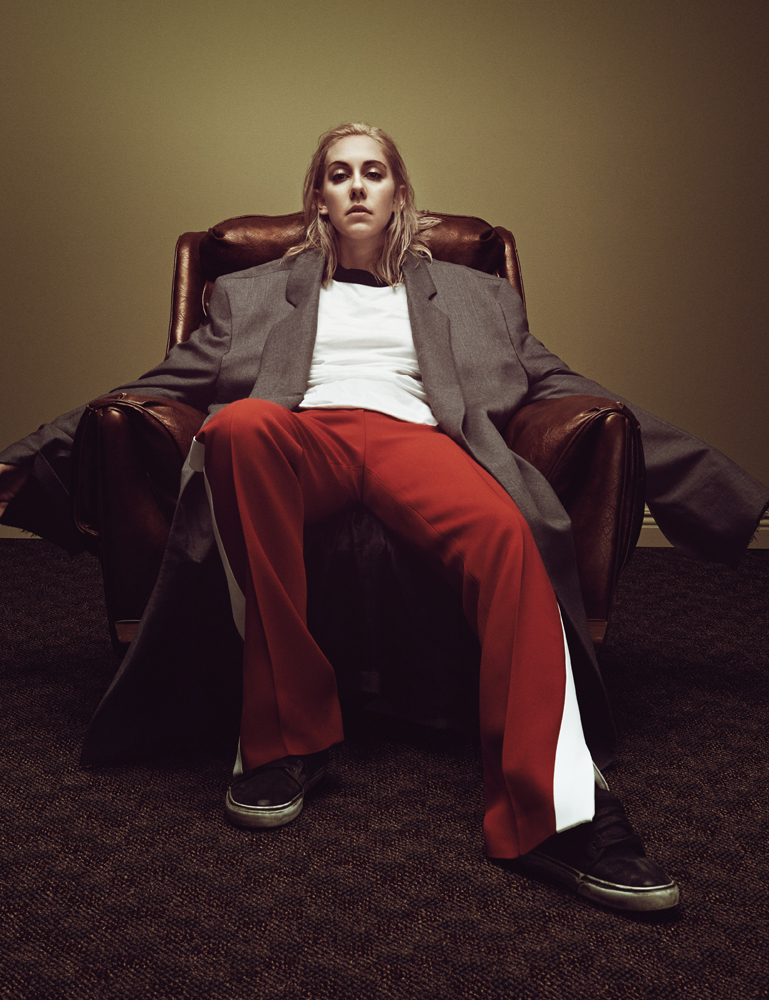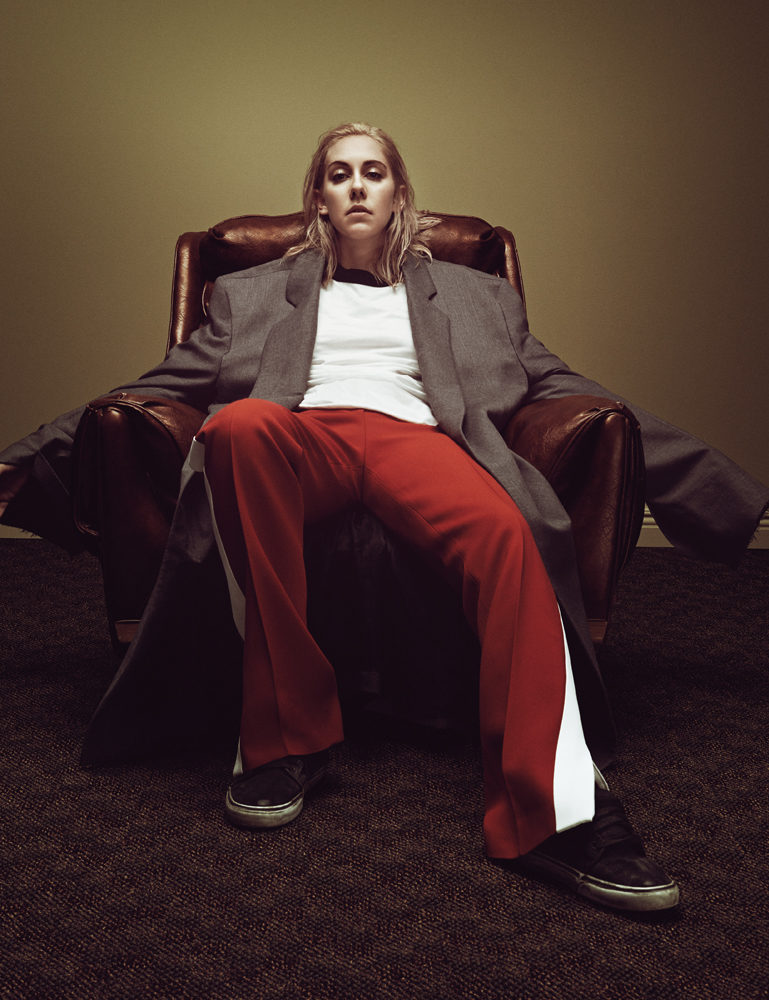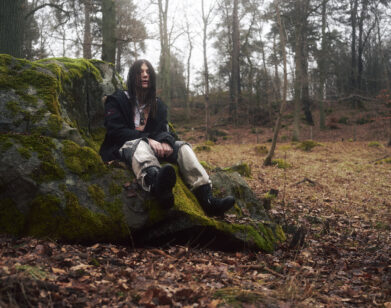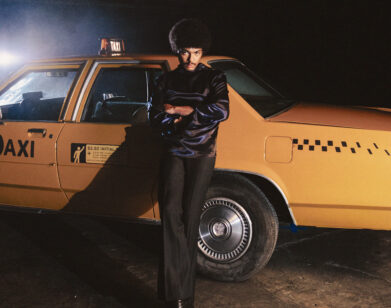Torres


MACKENZIE SCOTT IN NEW YORK, MARCH 2015. STYLING: ANDREW MUKAMAL. BLAZER: VETEMENTS. T-SHIRT: BOSS. PANTS: MICHAEL KORS. SHOES (VINTAGE): VANS. HAIR: SHINGO SHIBATA/THE WALL GROUP. MAKEUP: EMI KANEKO FOR KEVYN AUCOIN/D+V MANAGEMENT. MANICURE: ERI HANDA FOR DIOR VERNIS/MAM. SET DESIGN: WHITNEY HELLESEN. SPECIAL THANKS: ROOT BROOKLYN.
“Do you just sit and look around, and all of a sudden ask yourself, ‘Do I exist? Does he exist? Does she exist? Am I here?’ ” While sipping an Americano in her local Brooklyn coffee shop, 24-year-old Mackenzie Scott explains that these are questions she asks herself on a daily basis. For the past two years, Scott, better known as Torres, has written down her existential musings, occasionally turning the resulting poems into songs. These songs comprise Torres’s phenomenal sophomore album, Sprinter (out this month on Partisan), in which she digs deep into her past. Scott’s self-titled debut, which she released independently in 2013 soon after finishing college in Nashville, mined much of the same territory, however, she says, much of what she wrote during that period cut a bit too close to the bone. “I was writing, like Sylvia Plath once said, cries from the heart that were informed by nothing but a needle or a knife.”
For the new album, in addition to introducing a full band (which includes co-producer and drummer Rob Ellis and bassist Ian Olliver—who are known for their work with PJ Harvey—and guitarist and synth player Adrian Utley of Portishead), Scott’s self-examination is more direct, as when she challenges the constraints of her Christian upbringing in Macon, Georgia, on the title track: “There’s freedom to / And freedom from / And freedom to run / From everyone … The Baptist in me / Chose to run / But if there’s still time / To choose the sun / I’ll choose the sun.” Throughout the album, her voice rises and falls between a smooth alto and husky contralto, and chiming electric guitar and atmospheric synths often give way to lo-fi distortion and heady drums.
Citing influences as varied as the The Phantom of the Opera movie (2004), which she first saw when she was 14, and Sylvia Plath’s work, Scott is confident that her songwriting is now at a place that feels true. “Trust the lens you are given—the visual one, the one on your brain, the one on your spirit,” she says emphatically. “Nobody else can see through my eyes, nobody else has my brain. That’s the one thing I do know.”






